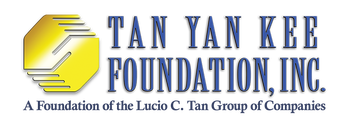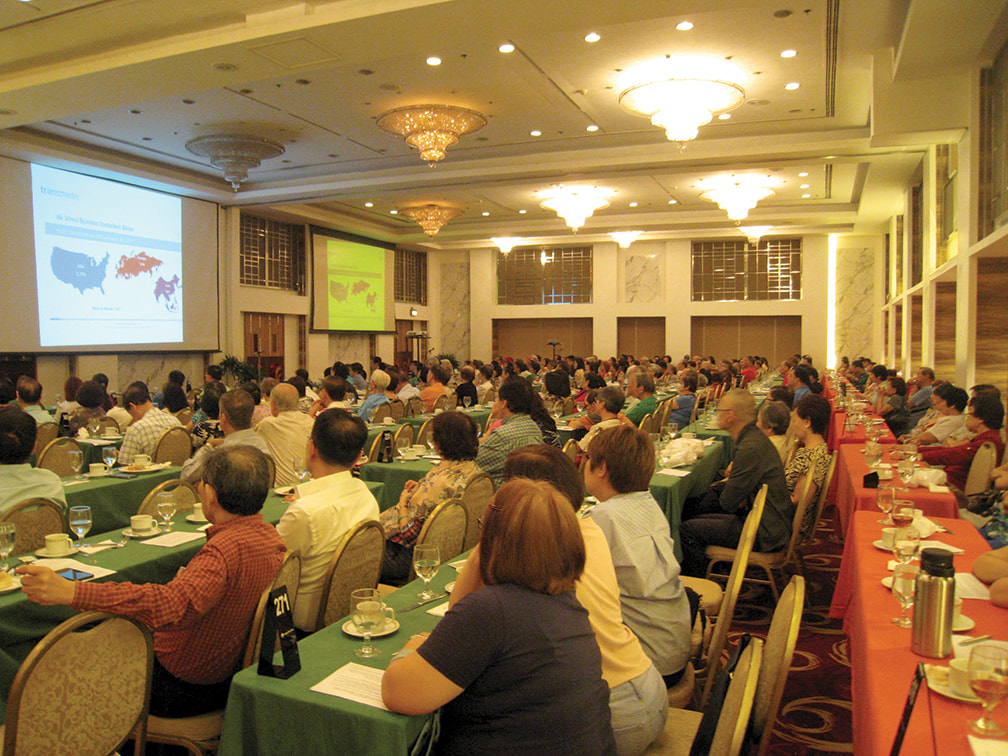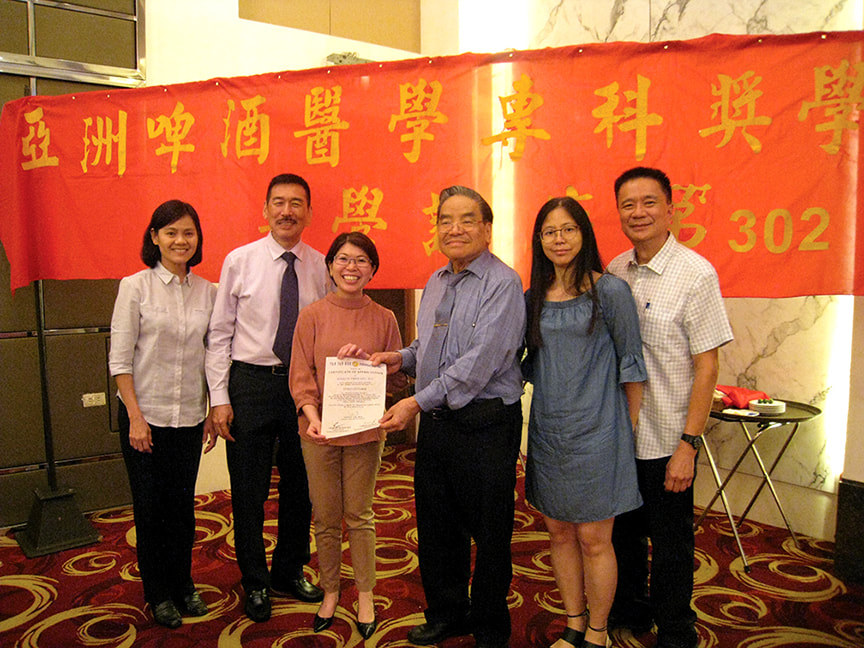Medical Forum No. 300
Diabetes and Me (Part 2): Abnormal Blood Lipids
Tommy Ty Willing, M.D.
(Clinic: Metropolitan: 254-1111)
The main blood lipids in the blood are cholesterol and triglycerides
Cholesterol is divided into:
- Low density lipoprotein (LDL)
- Very low density lipoprotein (VLDL)
- High density lipoprotein (HDL)
- Total cholesterol <200 mg/dl
- Triglycerides <150 mg/dl
- LDL <130 mg/dl
- HDL male > 40 mg/dl
High blood lipids usually do not have symptoms, some are hereditary
Guide To Achieve Good
Blood Lipids Level
- Limit intake of fats and fatty food
- Lessen intake of cholesterol containing food
- Select unsaturated fats
- Steam or grill food
- Lessen alcohol intake
- Select high fiber food
- Modify lifestyle
- Increase intake of Omega-3 fatty acid
- Achieve target blood lipid levels
- Avoid cigarette smoking
- Maintain ideal body weight
- Maintain good dietary intake
Medical Forum No. 301
Dermatology: Unboxed
Sharmaine Ivy S. Sun, M.D.
(Clinic: Chi. Gen. – 711-4141)
Fictions of Dermatology:
- Dermatologists only examine the skin
- All dermatologists are the same
- Consult a dermatologist if you want to look good or be beautiful
- Dermatologists look at adult patients only
Fictions of Skin and Hair Care:
- nIf I wash, cut, or brush my hair frequently, hair will grow faster.
- Frequent washing, application of rubbing alcohol, or soaking in hot water will get rid of the itchiness.
- I cannot eat chicken, egg, or seafood as long as I have a rash. My rashes came from eating the wrong food.
- My wound is not healing. I think I have diabetes.
- If the snake-like rash encircles my body, I will die!
- Acne and other skin problems can be solved with the right soap.
- I will take vitamin E capsules so that I will have healthy skin.
- I will use whitening soaps to become fairer.
Care Tips:
Skin
- Take a bath once a day using mild soap
- Limit bathing to 5-10 minutes
- Use lukewarm or cool water
- Lightly pat dry with towel
- Do not use loofah, shower puff, scrubs or face towel
- Use moisturizers on dry skin; creams for cold weather; lotions during summer
- Shampoo once a day
- Cut or trim hair regularly
- Long hair – may use conditioner on the hair strands, not scalp
- Dry hair using towel. Press out water, do not rub.
- Brush hair gently using wide-toothed comb once a day
- Avoid coloring, perming, damaging treatments to the scalp (ex.: Brazilian blow dry)
- Avoid excessive heating of hair (hair dryer, curling iron, straightener, etc.)
Nails
- Keep nails short and clean
- Do not remove the cuticle
- Check if materials used in nail salons are sterilized or disposable
- Avoid or refrain from doing manicures and pedicures – risk for ingrown nails and warts
Medical Forum No. 302
Overview of Sleep Disorders
Jonalyn Chris Ang, M.D.
(Clinic: Cardinal – 727-0001)
Limit the amount of time spent in bed as close as possible to the actual amount of time asleep. Avoid all sleep-incompatible activities like eating, watching television, listening to radio or planning or problem solving in bed.
Go to bed only when sleepy. If you have insomnia, do not use the bed if there is a feeling of fatigue or tiredness.
Get out of bed when unable to sleep.
Wake up at a regular time every morning regardless of the amount of sleep the night before.
Avoid daytime naps.
Imagery training by thinking of a peaceful situation and imagining yourself on that situation.
Meditation for progressive muscle relaxation.
Do not blame insomnia for all daytime impairment.
Never force yourself to sleep.
Do not give too much importance to sleep. Although sleep is a priority, it should not be the central point in life.
Medical Forum No. 303
Disorders of the Thyroid Gland
Susan Yu-Gan, M.D.
Thyroid gland: butterfly shaped organ at the base of the neck. It is responsible in producing tetra iodothyronine (T3) and thyroxin (T4) for a lot of our bodily functions like memory, heart rate, body metabolism, intestinal movement and even ovulation. Goiter is enlargement of the thyroid gland.
Kinds of Thyroid Dysfunction:
Functional:
Hyperthyroidism: hyperactive of thyroid gland, T4 level elevated, TSH decreased.
Symptoms:
- weight loss
- palpitations
- tremors
- sweatiness
- irritability
- increased bowel movement
- Graves’ Disease: composed of ophthalmopathy, diffuse goiter, thyrotoxicosis
- Toxic Adenoma
- Iatrogenic: over replacement of thyroid hormone
- medical
- surgical
- radioactive iodine
Hypothyroidism: inability to produce thyroid hormone. T4 levels decreased, TSH increased.
Symptoms:
- inability to concentrate
- lack of interest
- lethargy
- weight gain
- edema
- dry skin
- heavy menstrual flow
- cold intolerance
- macroglossia
- Hashimoto’s thyroiditis: autoimmune condition resulting to the destruction of the thyroid gland tissue
- Surgical removal of the thyroid
- Radioactive therapy
- Iodine deficiency
- Congenital absence of the thyroid gland
Oral intake of thyroxine (thyroid hormone)
Structural:
Diffuse (simple goiter): enlargement of the thyroid gland due to hypothyroidism and over-stimulation of TSH
Nodular:
singular or multiple: majority are benign
solid or complex, ill-defined, large and contains macro calcification: benign or malignant
Myths and fallacies regarding the
development of goiter:
Straining or bearing down during labor of baby can cause goiter. [False]: TSH levels rise during pregnancy, thus causing enlargement of the thyroid gland.
Eating cabbage, carrots, and cassava can cause goiter. [False]: These foods are considered goitrogens, but you need to eat truckloads of these foods to cause goiter.
When a person has goiter, he should eat lots of seafood. [False]: Not all goiters are due to iodine deficiency.
Hyperthyroidism, too much thyroid hormone: eating too much seafood may aggravate the condition.
Hypothyroidism, lack of thyroid hormone, due to destruction of the thyroid gland (from radioactive iodine therapy, thyroid surgery or Hashimoto’s thyroiditis): giving more iodine will not help in any way.
Seafoods are the only source of iodine. [False]: There are other sources of iodine like milk and dairy products, bread and other bakery products, iodized salt and even water.
Once salt is iodized, it is good forever. [False]: Iodized salt should be consumed within 6 months.
Iodized salt can cure iodine deficiency. [False]: Hypothyroidism (Cretinism) is an iodine deficiency condition of the baby developed during mother’s pregnancy. This cannot be cured by iodine treatment.
Diagnosis: newborn screening
Treatment: partially giving the baby thyroxin
Doctors daily suggested iodine intake:
Pregnant: 250 mcg.
Lactating: around 290 mcg.
Normal Person: 150 mcg.
Too much iodine is harmful. [False]: Long term consumption of iodine is not toxic. Excess iodine intake is excreted by the body through urine.
Medical Forum No. 304
What’s New in Prostate Cancer: Detection and Treatment
Jason L. Letran, M.D. (Clinics: Cardinal – 727-0001, Chi. Gen. – 711-4141)
Prostate Cancer: one of the most common cancer in men; also one of the most curable cancers, if detected early
Serum Prostate Specific Antigen (PSA) Level: periodic check for early detection; the higher the level, the higher the chance of prostate cancer and will be a more aggressive one
Normal: 0-4 ng/dl.
Abnormal: above 4 ng/dl. and biopsy is needed to verify
Transrectal Ultrasound Guided Needle Biopsy: cannot pinpoint the exact location of the suspected tumor, might lead to rectal bleeding and severe life threatening infection
Multi-Parametric Magnetic Resonance Imaging (MP-MRI): captures real time images where the tumor can be visualized for biopsy
Koelis Trinity Fusion Biopsy Machine: targeted biopsy up to 90% detection rate; safer to locate tumors in deeper and more anterior area, eliminates infection
Treatment: Radical Prostatectomy
complete cancer excision while preserving continence and potency
can minimize the risk of perioperative complications and discomfort
Da Vinci Robot Assisted Radical Prostatectomy: newest, most efficient, less invasive surgical procedure under the direct control of urologic surgeon. It offers 10 times magnified 3D view, 7 degrees of freedom, improved ergonomics and a miniaturized wristed instrument that will enhance the surgery.
Advantages: shorter hospital stay, less postoperative pain, less risk of infection, less blood loss, less scarring, potentially better continence and potency preservation, faster recovery
Medical Forum No. 305
Relationship of Early Childhood Experiences and
Lifelong Physical and Mental Health: Understanding What Matters
Elizabeth Go-Tan, M.D. (Clinics: Chi. Gen. – 711-4141, Fatima – 291-6538, Valenzuela – 294-6711)
Parents are the central and constant influence in the lives of their children. Parents’ childhood experiences, value, culture, or beliefs will unnoticeably influence their parenting styles and will constantly influence the lives of their children.
New scientific research shows early life’s experiences are critical to healthy brain development. Learning how to cope with different challenges and negative stressors in life is important part of healthy child development.
Kinds of Stress:
Positive Stress: brief increase in heart rate, blood pressure, and stress hormone levels
Tolerable Stress: body’s reaction to more severe, longer lasting difficulties such as the loss of a family member, a natural disaster, or injury
Negative Stress: can cause unhealthy physical and mental health and has a great impact to the society
Toxic Stress: when a child suffered strong, prolonged negative experiences such as physical, emotional, or psychological abuse, chronic neglect, caregiver substance abuse or mental illness, economic hardship, without the presence of an adequate, supportive adult structural damage of the brain leads to adverse behavior, social disorders, and stress-related diseases and mental health impairment into adulthood.
Prevention:
Safe, stable, and nurturing relationship developing resiliency and a supportive environment in early childhood could lessen negative lifelong consequences of adverse childhood experiences and increase the chances of greater success and better health in the future
Health care providers must promote effective evidenced-based parenting practices to build a culture of resilience in every child.
Parents and caregivers are highly encouraged to seek help of health care professionals for any issues or concerns in child’s physical, behavioral, emotional, and mental health. It is much easier and less costly to form strong brain connections during the child’s early years than to “fix” a damaged one later in life.



 RSS Feed
RSS Feed